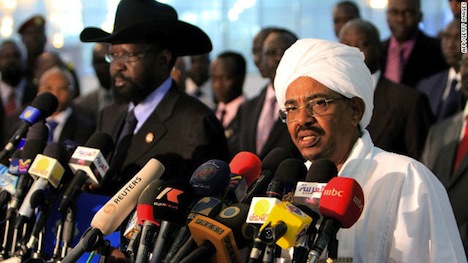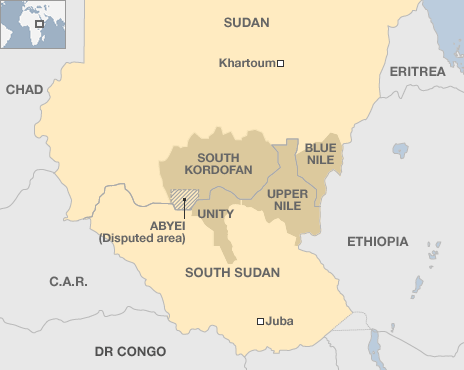 Photo credit to Ashraf Shazly/AFP/Getty Images
Photo credit to Ashraf Shazly/AFP/Getty Images
Guest post by Kevin Buettner
In the span of just a couple weeks, Africa will experience both a historic democratic transfer of power in Nigeria and the stubborn clinging to power by a dictator in Sudan, as scheduled elections begin for the first time since the largely Christian South Sudan split from the rest of the chiefly Muslim country in 2011.![]()
Sudanese president Omar al-Bashir has ruled over perhaps the most turbulent stretch of Sudan’s post-colonial existence. During the last quarter-century, Bashir watched as Sudan lost South Sudan after decades of conflict, a concurrent genocide in Darfur (for which Bashir was indicted by the International Criminal Court), and a escalating crisis in the Blue Nile and South Kordofan states in the south of the new, truncated Sudan.
The ruling National Congress Party (NCP, المؤتمر الوطني) has ensured its continued power and Bashir’s easy reelection by designating as ‘independent’ all persons running for office without the explicit consent of the NCP leadership. With strict NCP and government control over the Sudanese media, the NCP has created the perception that the opposition is disunited.
* * * * *
RELATED: Who would win a South Sudanese civil war? Khartoum.
RELATED: Pressing pause — South Sudan at a crossroads
* * * * *
Moreover, much of the Sudanese opposition is simply boycotting polls that are expected to fall well short of international standards for free and fair elections. No one expects Bashir to lose reelection, despite some of the most strident protests in recent memory in September 2013 when residents in Khartoum, the capital city, turned out to denounce price increases and the economic malaise of the 2010s, many calling on Bashir to resign. Several dissident NCP members denounced Bashir and in November 2013, Bashir dismissed his long-serving first vice president, Osman Taha, who was largely credited with working with South Sudan and the international community to enact the peace agreement that cleared the way for South Sudan’s 2011 independence referendum. Today, however, it seems clear that Bashir has widely survived the 2013 tumult.
Though Bashir rose to Sudan’s presidency for the first time in a 1989 military coup, he only truly consolidated power between 1996 and 1999, when he outmaneuvered Sudan’s behind-the-scenes leader, Islamist hardliner Hassan al-Turabi, in part due to rising US concern about Sudan’s ties to radical Islamic terrorism.
Today, Sudan’s electorate is hardly in the kind of shape to hold a robust election that meets any kind of norm of civil society. Continue reading Sudan’s Bashir set for expected reelection

